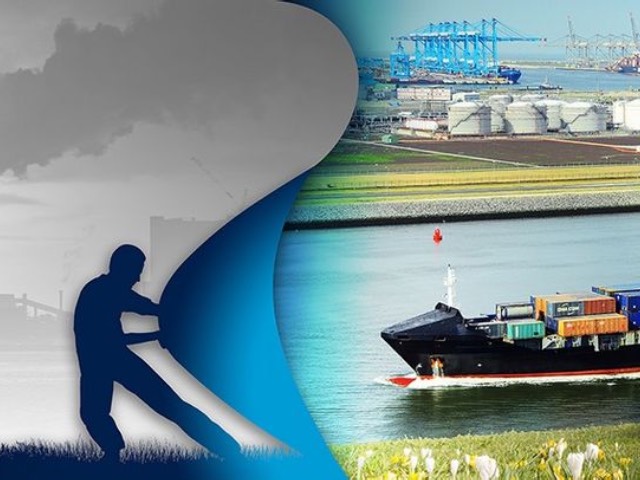The European Seaports Organisation ESPO has published a paperwith recommendations for the upcoming revision of the Trans European Networks for Energy (TEN-E) legislation. The Port of Rotterdam supports this call to better recognize the important role of ports in Europe’s new energy systems, specifically with regard to hydrogen, and stresses that the European Commission must support the necessary facilities and infrastructure in ports needed to accelerate the import, production, supply and transport of green hydrogen into Europe.
A dedicated section on hydrogen should be included in TEN-E to allow for the construction of new dedicated hydrogen pipelines across Europe. Also, the European Commission must consider the importance of green hydrogen imports to meet increasing demand for green hydrogen in Europe. Hydrogen imports also have a strong geopolitical dimension that should be better recognized by the European institutions.
European seaports are important in the supply lines of fossil energy to the European hinterland. In order to continue this important role in the future, they invest in hydrogen as the future clean energy sources and carriers. These ports are currently not included in existing gas or electricity corridors. In order to avoid missing out these key hubs of European energy supply lines – and to integrate hydrogen projects as efficiently as possible – ESPO recommends the integration of new dedicated hydrogen infrastructure as a priority area under the regulation and to add an explicit link between the new hydrogen corridors and the TEN-T network. Ports can contribute to the development of alternative fuels infrastructure along TEN-T corridors in order to supply hydrogen to inland industry clusters, bunkering infrastructure for inland navigation and fuelling stations for road and rail.
Finally, European ports believe that the TEN-E review must update existing administrative and funding processes. In particular, works – not only studies – should be eligible in the related funding instruments. Similarly, confusion around the eligibility of Carbon, Capture and Storage (CCS) works should be cleared up and made eligible for funds. The review should also include provisions for projects with multiple energy infrastructures, for example hydrogen and CO2 pipelines. This provides added value in terms of spatial planning processes and administrative processes. Current administrative process requiring renewals each two years of the Projects of Common Interest (PCIs) is cumbersome and inefficient. To reduce administrative burden and ensure certainty regarding funding opportunities, ESPO supports the establishment of the PCI list every two years, but stresses that projects with PCI status should remain on the list for at least four years.









































